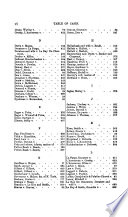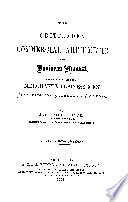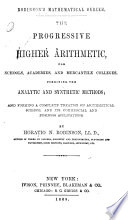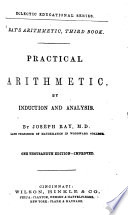 If the payment be less than the interest, the surplus of interest must not be taken to augment the principal; but interest continues on the former principal until the period when the payments, taken together, exceed the interest due, and then the surplus... If the payment be less than the interest, the surplus of interest must not be taken to augment the principal; but interest continues on the former principal until the period when the payments, taken together, exceed the interest due, and then the surplus...  Higher Book - Page 192by William Seneca Sutton - 1896Full view Higher Book - Page 192by William Seneca Sutton - 1896Full view - About this book
 | Benjamin Vaughan Abbott, Austin Abbott - Law reports, digests, etc - 1864 - 808 pages
...is less than the interest, the surplus of interest must not be taken to augment the principal; but interest continues on the former principal until the...interest due, and then the surplus is to be applied towards discharging the principal, and interest is to be computed ou the balance. Chancery, 1814, State... | |
 | Alonzo Christopher Paige - Equity - 1864 - 828 pages
...payment be less than the interest, the surplus interest must not be taken to augment tha principal ; but interest continues on the former principal until the...the payments taken together exceed the interest due, an 1 then the surplus is to be applied toward discharging the principal ; and interest u to be computed... | |
 | George Roberts Perkins - Arithmetic - 1865 - 360 pages
...be less than the interest, the surplus of interest must not be takcn to augment the principal ; but interest continues on the former principal until the...exceed the interest due, and then the surplus is to bt applied towards discharging the principal ; and interest is to be computed on the balance, as aforesaid."... | |
 | Law - 1865 - 358 pages
...be less than the interest, the surplus of interest must not be taken to argument the principal ; but interest continues on the former principal until the...exceed the interest due, and then the surplus is to beapplied towards discharging the principal, and interest is to be computed on the balance of principal... | |
 | Benjamin Vaughan Abbott, Austin Abbott - Conveyancing - 1866 - 758 pages
...is less than the interest, the surplus of interest must not be taken to augment the principal ; but interest continues on the former principal until the...interest due, and then the surplus is to be applied towards discharging the principal, and interest is to be computed on the balance. Compound interest,... | |
 | John Groesbeck - Arithmetic - 1867 - 226 pages
...be less than the interest, the surplus of interest must not be taken to augment the principal ; but interest continues on the former principal until the...interest due, and then the surplus is to be applied towards discharging the principal, and interest is to be computed on the balance as aforesaid. Decision... | |
 | Indiana. Supreme Court, Horace E. Carter, Albert Gallatin Porter, Gordon Tanner, Benjamin Harrison, Michael Crawford Kerr, James Buckley Black, Augustus Newton Martin, Francis Marion Dice, John Worth Kern, John Lewis Griffiths, Sidney Romelee Moon, Charles Frederick Remy - Law reports, digests, etc - 1868 - 622 pages
...payment be less than the interest, the surplus interest must not be taken to augment the principal ; but interest continues on the former principal until the...interest due, and then the surplus is to be applied towards discharging the principal ; and interest is to be computed on the balance of the principal... | |
 | John Groesbeck - Arithmetic - 1868 - 350 pages
...be less than the interest, the surplus of interest must not be taken to augment the principal; but interest continues on the former principal until the...interest due, and then the surplus is to be applied towards discharging the principal, and interest is to be computed on the balance as aforesaid. Decision... | |
 | Horatio Nelson Robinson - Arithmetic - 1868 - 468 pages
...the interest the surplus of interest must not be taken to augment the principal, but the mte* rest continues on the former principal until the period...interest due, and then the surplus is to be applied towards discharging the principal, and the interest is to be computed on the balance as aforesaid."... | |
 | Joseph Ray - Arithmetic - 1857 - 358 pages
...payment be less than the -Int., the surplus of Int. must not be taken to augment the principal, but Int. continues on the former principal, until the period when the payments, taken together, exceed the Int. due, and 'then the surplus is to be applied toward discharging the principal; and Int. is to be... | |
| |